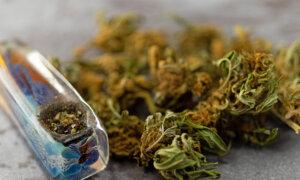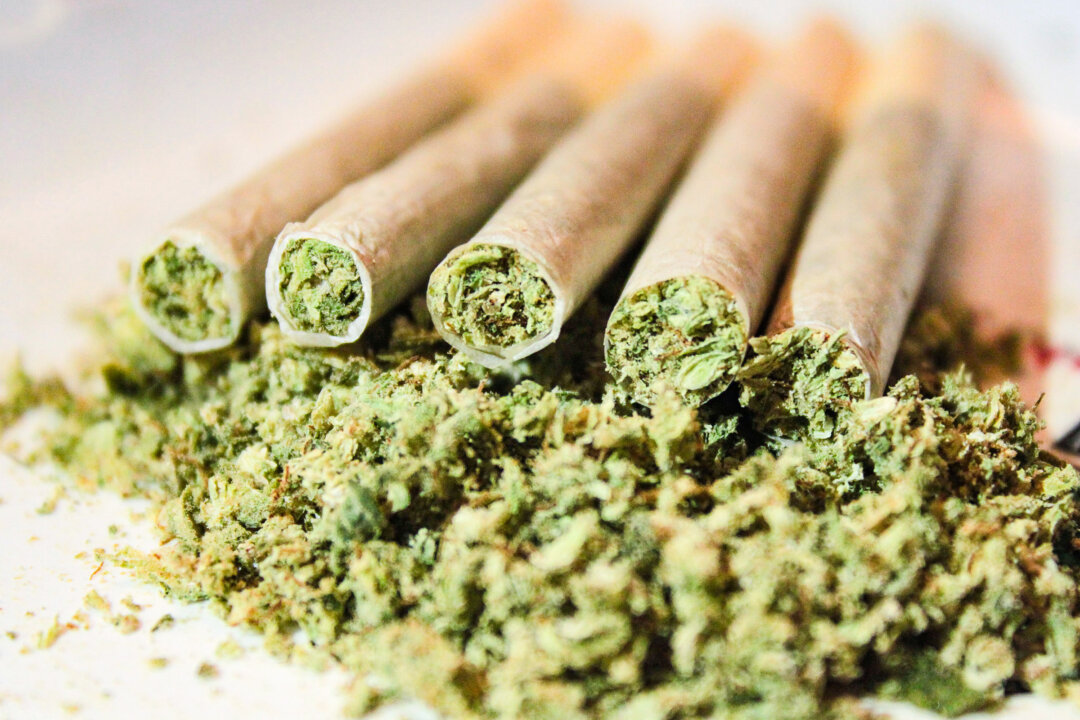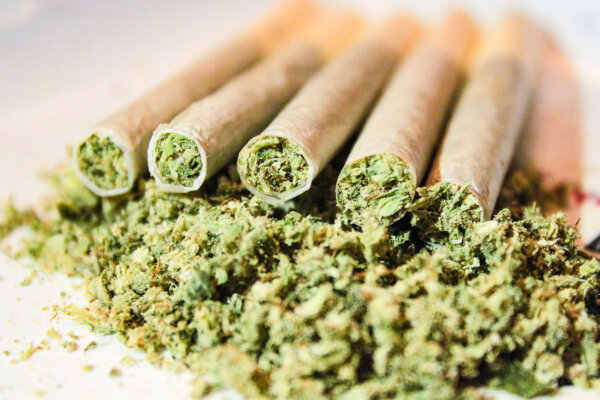Cannabis Use Linked to Higher Risk of Severe COVID-19: Study
Cannabis use is associated with higher risk of COVID-19 hospitalization and ICU admissions, but not COVID mortality.
A new study finds that cannabis use is associated with an increased risk of COVID-related complications.
COVID-19 hospitalization and ICU risks associated with cannabis use are “at the same level as tobacco and comparable to having a high BMI (body mass index) and diabetes,” Dr. Li-Shiun Chen, professor of psychiatry at the Washington University School of Medicine, told The Epoch Times.
Cannabis use, however, was not associated with increased risk of COVID-related death, the authors noted.
The study evaluated electronic health records of over 72,000 COVID-19 patients to see if their substance use influenced disease outcomes.
Independent of each other, tobacco smoking and cannabis are both risk factors for worse COVID-19 outcomes, the study found. This suggests that a person who both smokes and uses cannabis is at double the risk of worse outcomes than if they only do one, Dr. Chen said.
Vaping and alcohol use were also evaluated, but the sample was too small to draw a proper conclusion.
Crude Findings on Substance Use
Of the 72,501 patients, almost 10 percent reported cannabis use, and 13.4 percent reported being cigarette smokers.
These proportions were comparable to overall U.S. prevalence: Around 12 percent of Americans smoke, and 17 percent use cannabis.
The research authors noted that while cannabis use is associated with increased COVID-19 hospitalizations and ICU admissions, it was not associated with increased risks of mortality.
“For the risk of death, tobacco risk is clear but more evidence is needed for cannabis,” Dr. Chen said in the press release.
The study could not explore why cannabis may be associated with an increased risk of severe COVID-19 outcomes.
Dr. Chen said that their study is based on crude electronic health data. The data is based on patients self-reporting cannabis use, and they were not surveyed on the type of cannabis they used, frequency of cannabis consumption, and so on.
Dr. Chen said that the current study presents a question about how substance use can affect the body when challenged with a virus.
She said that most studies currently investigating COVID-19 focus on people’s comorbidities, such as metabolic conditions. Still, substance use should also be considered, given that this study found the risks to be comparable.
Cannabis Use and COVID-19
Dr. Chen’s study contrasted with some prior research showing that cannabis users were more protected against COVID-19.
Dr. Joseph-Kevin Igwe, a clinical assistant professor at Baylor College of Medicine and the lead author of the article, said that his study is an over one-year, nationally representative, multicenter cohort study, while the JAMA Open Network study is a single-center cohort over two years.
“This is likely to [be the] most glaring difference and explain many of the differences in outcome, as regional differences in reports of cannabis use among patient populations and coding variability between regions/hospitals may vary significantly,” he wrote in an email to The Epoch Times.
The authors also found that cannabidiol loses its property to inhibit SARS-CoV-2 when combined with delta-9-tetrahydrocannabinol (THC), the primary psychoactive compound of cannabis. THC is what gives users their “high.”
Marsha Rosner, a distinguished service professor at the University of Chicago Ben May Department of Cancer Research and one of the study’s senior authors, told The Epoch Times that their study only evaluated the effects of pure CBD and, therefore, could not be comparable to research on cannabis.
“THC … does not inhibit SARS-COV-2 alone but, when combined with CBD, will antagonize the CBD effects. But we have no idea what marijuana or hemp would do because we have not studied the outcomes,” the distinguished professor said.
She noted that marijuana and hemp are mixtures of chemicals, which can behave very differently from pure chemicals.
Other Risks
Cannabis is a mind-altering drug derived from cannabis plants that can change one’s mood and perceptions.
Psychological side effects of cannabis use include impaired memory, cognition, and body movements. People who take high doses are at risk of suffering from psychosis and delusions.
Substance Use and Health Risks
The take-home message from Dr. Chen’s paper is that people should be careful when using substances, considering how they may affect their bodies, especially when challenged with infections, she said.
Owing to the legalization of cannabis across states, she is seeing more patients becoming interested in cannabis and its derivatives in mental health therapeutics.
“There’s this sense among the public that cannabis is safe to use, that it’s not as bad for your health as smoking or drinking, that it may even be good for you,” said Dr. Chen.
However, as her study suggests, more research is needed on cannabis use, she said.
She alluded to the research journey on the health effects of alcohol.
“I think we want to keep an open mind, and we really encourage work to keep monitoring the complex health impact of cannabis more commonly available,” Dr. Chen said.






